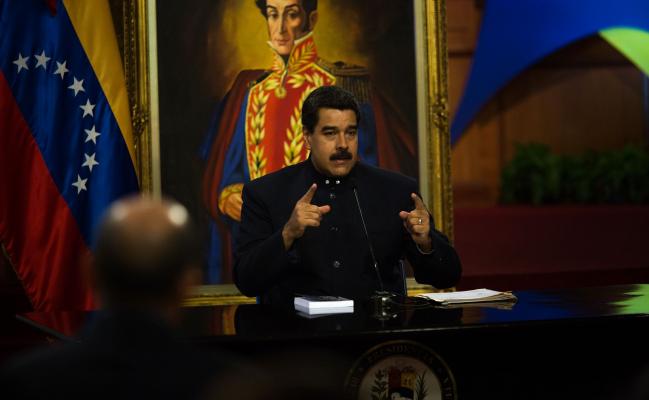(Bloomberg) -- Bolivia’s new government has only been in power for three days, yet it’s already turned the nation’s foreign policy on its head, transforming former allies into enemies, and former enemies into friends.
The government of interim leader Jeanine Anez is cutting the nation’s close ties with socialist nations such as Venezuela and Cuba, and re-aligning the country’s foreign policy with the U.S.
On Friday, the government said it will expel all Venezuelan diplomats in the country.
Venezuela was a close ally of Bolivian President Evo Morales, who quit Sunday. Morales had a prickly relationship with Washington. He fled to Mexico this week after he lost the support of the security forces and says he’s the victim of a “right-wing coup.”
Morales’s allies, who have a majority in both houses of congress, say Anez’s unelected government is illegitimate and has no authority to make policy decisions.
Foreign Affairs Minister Karen Longaric, who was sworn in this week, justified the move against Venezuelan diplomats by saying that representatives of President Nicolas Maduro’s Venezuelan government have interfered in Bolivia’s internal affairs.
Longaric told reporters that the measure applies to all diplomatic personnel in the Venezuelan Embassy.
Armed Venezuelan citizens were involved in “violent acts” that exacerbated unrest in the country, the minister said. More than 700 Cuban citizens, some of them doctors, have also been asked to leave, she said.
Read More: Coup or No Coup, Bolivia’s Morales Fell From Grace: QuickTake
Longaric said Bolivia has severed ties with the Venezuelan-led economic bloc of Latin American countries called Alba, and is also considering leaving the Unasur group of countries that was formed by leftist governments to counter the U.S.-dominated Organization of American States.
The government will seek closer ties with the U.S and Chile after years of frosty relations under Morales, the minister said earlier this week.
Morales told Reuters Friday that while he would like to return to Bolivia, elections could be held without him.
(Updates with minister’s comment in fifth paragraph.)

